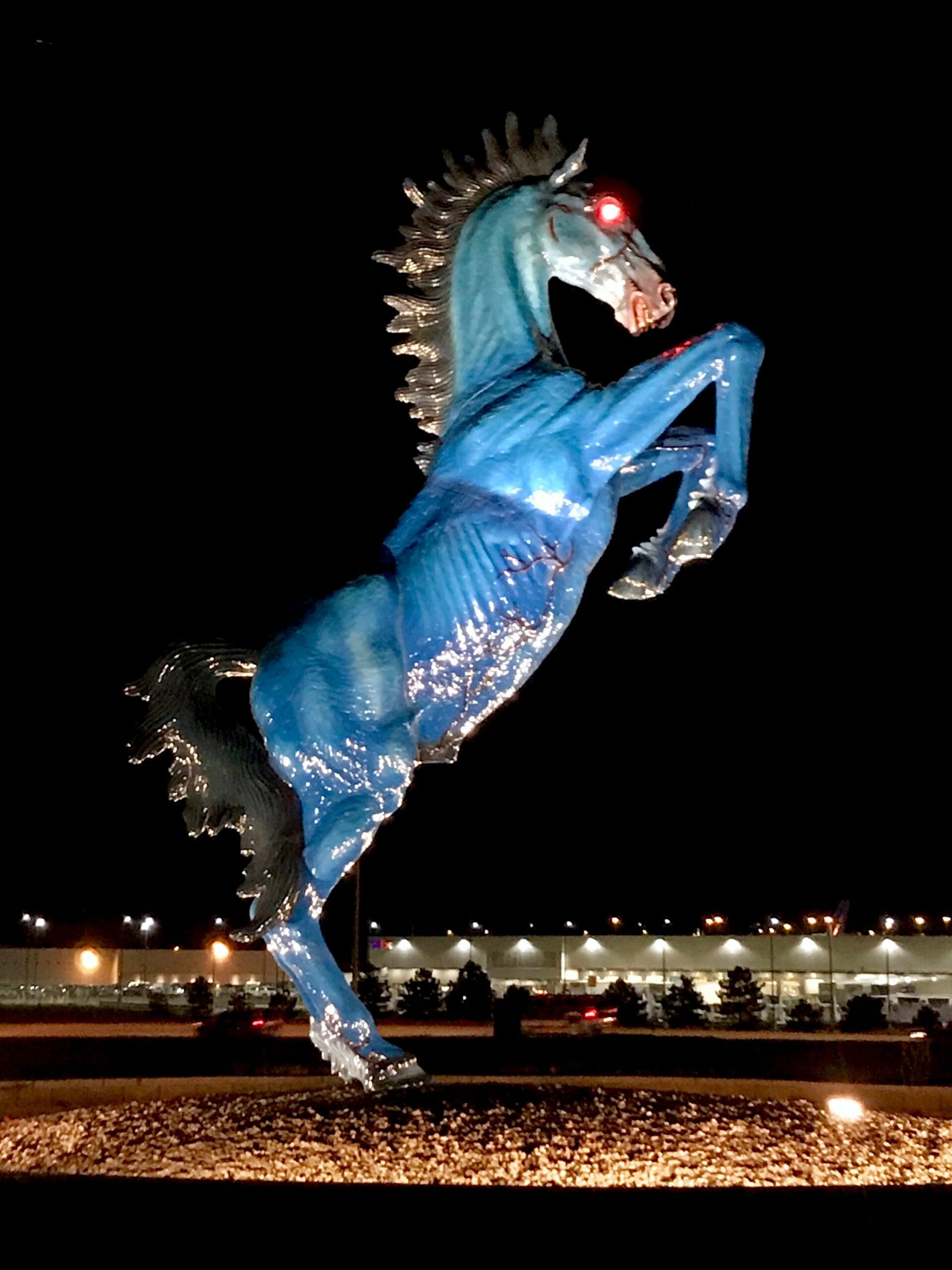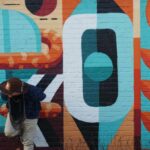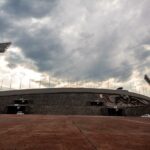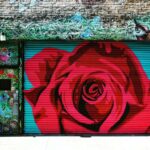Denver International Airport (DIA) is known not only for its bustling atmosphere and efficient travel experience but also for something entirely more mysterious: its enigmatic murals. These colossal artworks, gracing the walls of DIA since its opening in 1994, have been the subject of endless debate, sparking conspiracy theories and captivating travelers from around the world. Join us as we delve into the captivating world of these murals, attempting to decipher their hidden meanings and untangling the web of theories that have woven around them. From the unsettling imagery of “Children of the World Dream of Peace” to the environmental plea of “In Peace and Harmony with Nature,” each mural invites viewers to confront challenging questions about art, interpretation, and the power of symbolism.
The Murals That Ignited a Firestorm
Nestled within DIA’s expansive terminals are two murals that have become particularly notorious: “Children of the World Dream of Peace” and “In Peace and Harmony with Nature,” both created by the acclaimed Chicano artist Leo Tanguma. Commissioned as part of Denver’s “one percent for art” program, these murals, with their vibrant colors and often unsettling imagery, were intended to spark dialogue about pressing social and environmental issues. However, instead of prompting peaceful reflection, the murals ignited a firestorm of controversy, fueled by speculation and conspiracy theories that have, in many ways, overshadowed the artist’s original intent.
“Children of the World Dream of Peace”: A Divided World
This mural, prominently displayed in the baggage claim area, features a complex and multi-layered composition that has become a breeding ground for conspiracy theories. The artwork depicts a scene of global conflict and environmental devastation, juxtaposed with images of hope and unity. Some of the key elements that have fueled speculation include:
- The Weeping Woman: A distraught woman cradles a lifeless child in her arms, symbolizing the devastating toll of war and violence.
- The Gas-Masked Soldier: A menacing soldier wearing a gas mask and wielding a sword, often interpreted as a symbol of oppression and military might.
- The Diverse Children: Children from various cultures and backgrounds gather around a central figure, symbolizing a hope for peace and unity in a divided world.
“In Peace and Harmony with Nature”: A Call for Environmental Stewardship
This mural, located near the security checkpoints, focuses on the interconnectedness of humanity and the natural world. It contrasts a scene of environmental destruction with a hopeful vision of a restored and thriving ecosystem. Key elements of this mural include:
- The Burning Forest: A raging fire engulfs a forest, representing the devastating consequences of deforestation and environmental neglect.
- The Endangered Species: Animals on the brink of extinction symbolize the loss of biodiversity and the urgent need for conservation.
- The Rainbow and the Dove: Symbols of hope and peace emerge from the darkness, suggesting the possibility of a harmonious future if humanity embraces environmental stewardship.
The Artist’s Voice: Leo Tanguma’s Vision of Peace
Leo Tanguma, a prominent figure in the Chicano art movement, has consistently rejected the conspiracy theories surrounding his murals. He maintains that his intention was to create art that stimulates conversation about crucial social and environmental issues, inspiring viewers to work towards a more just and sustainable world.
In a 2019 interview, Tanguma, reflecting on the controversy, shared his perspective, stating, “I thought and I still think that these people are deranged.” He emphasized that his art is rooted in his belief in the power of hope and the potential for positive change.
Public Art in the Digital Age: Where Art, Interpretation, and Conspiracy Collide
The Denver Airport murals present a compelling case study in the complex relationship between art, public interpretation, and the role of conspiracy theories in the digital age. Some experts suggest that the murals’ open-ended nature, combined with the accessibility of information (and misinformation) online, has created fertile ground for speculation to thrive.
The Psychology of Conspiracy Theories: Why We Seek Hidden Meanings
The tendency to seek hidden meanings and embrace conspiracy theories, especially in art, is a complex phenomenon. Some psychologists suggest that it stems from a desire for control and understanding in a world that can often feel chaotic and unpredictable. Conspiracy theories might provide a sense of order and explanation, even if those explanations are based on speculation rather than evidence.
Public Art and Controversy: Navigating Interpretation and Sensitivity
The controversy surrounding the murals raises questions about the role of public art, freedom of expression, and the responsibility of artists when engaging with potentially sensitive themes. Should public art aim to please the masses, or should it challenge viewers and spark uncomfortable conversations?
The Murals’ Future: An Uncertain Fate
As of 2023, the future of the Denver Airport murals remains uncertain. DIA has announced plans for a major renovation project, and while the airport has confirmed that it is “committed to conserving the artwork,” the specific plans for the murals have not yet been released.
Whether they remain on display, are relocated, or end up in storage, the Denver Airport murals have undoubtedly left an indelible mark on popular culture. They serve as a powerful reminder of the subjective nature of art, the persistence of conspiracy theories, and the ongoing dialogue between artists and their audiences.
Exploring Further: DIA’s Other Artistic Treasures
The murals are but one element of DIA’s impressive art collection, which features a diverse range of sculptures, installations, and paintings throughout the airport. Perhaps the most infamous of these artworks is Luis Jiménez’s “Blue Mustang,” a 32-foot-tall, bright blue statue of a rearing mustang with glowing red eyes. This imposing sculpture, affectionately nicknamed “Blucifer” by locals, has also become entwined with its own share of lore and legend, further adding to the mystique of DIA.
Have you ever wondered what Marilyn Monroe’s last moments looked like? What if that’s not the end? Does anyone know when we die? Some believe it’s possible, but what about when we don’t? What about Ed Kemper? Does he still live in our collective consciousness? How about Dorothy Stratten, murdered by her husband and manager, Paul Snider? Was her death in vain or does her story still inspire others today to escape their own abusive relationships and circumstances?
The Denver Airport Murals And The Conspiracy Theories Surrounding Them, All That’s Interesting. (Link: allthatsinteresting.com)
Cheryl Detwiler Mihaka, The Colorado Sun. (Link: coloradosun.com)
- China II Review: Delicious Food & Speedy Service - April 17, 2025
- Understand Virginia’s Flag: History & Debate - April 17, 2025
- Explore Long Island’s Map: Unique Regions & Insights - April 17, 2025
















